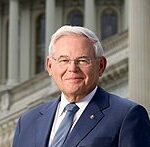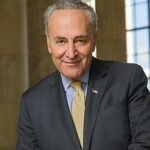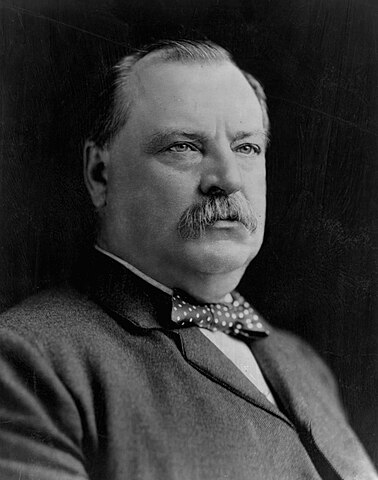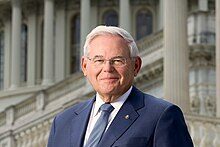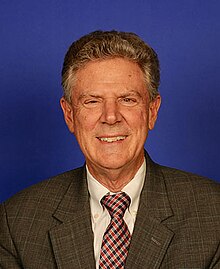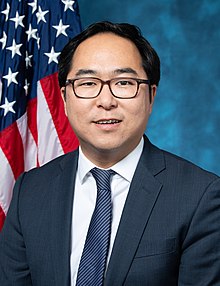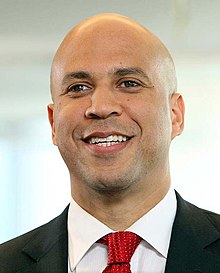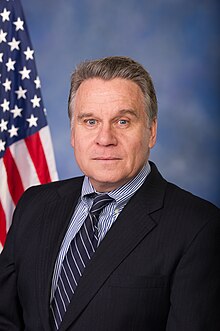 Rep. Robert Menendez Jr., a Democratic congressman from New Jersey, has been a prominent figure in the political landscape, largely due to his role in advocating for civil rights, immigrant protections, and social reform initiatives. Son of Senator Robert Menendez Sr., he was first elected to the House of Representatives for New Jersey’s 8th Congressional District in 2022. Despite being a relatively new legislator, Menendez Jr. has attracted significant attention due to his family’s political influence and his active stance on various issues affecting the state.
Rep. Robert Menendez Jr., a Democratic congressman from New Jersey, has been a prominent figure in the political landscape, largely due to his role in advocating for civil rights, immigrant protections, and social reform initiatives. Son of Senator Robert Menendez Sr., he was first elected to the House of Representatives for New Jersey’s 8th Congressional District in 2022. Despite being a relatively new legislator, Menendez Jr. has attracted significant attention due to his family’s political influence and his active stance on various issues affecting the state.
However, Menendez Jr. and his father have also become involved in legal controversies, drawing increased scrutiny from the media and the public. The younger Menendez’s indictments are part of broader legal troubles impacting the Menendez family, with allegations primarily surrounding financial misconduct, possible abuse of office, and ethical concerns. Although Menendez Jr. has yet to be found guilty, these charges could have significant implications for his political career and the perception of his family legacy within New Jersey’s political establishment.
The allegations against Menendez Jr. focus largely on claims of accepting bribes and illicitly using his political influence to benefit certain individuals and businesses. Reports suggest that Menendez allegedly accepted luxury gifts, cash payments, and other valuable items in exchange for his assistance in legislative matters or in securing beneficial outcomes for particular entities. For instance, Menendez is accused of helping individuals secure government contracts or navigate regulatory issues in return for these gifts. Investigators claim that Menendez’s actions may have violated both federal and state laws, which prohibit elected officials from receiving anything of value in exchange for official acts.
One of the major indictments centers on an alleged scheme involving business associates and foreign officials, in which Menendez is accused of using his position to favor certain foreign interests. This case involves his alleged assistance in advancing the objectives of a foreign country by advocating for policies that would benefit them. Such actions, if proven, could be construed as a serious breach of public trust and could bring severe penalties under U.S. law.
Another aspect of the allegations highlights Menendez’s alleged involvement in financial misconduct, such as failing to disclose certain assets and income sources as required by law. Federal financial disclosure rules mandate that members of Congress report all sources of income and certain financial transactions to maintain transparency and public accountability. Menendez’s failure to comply with these rules, according to prosecutors, suggests that he may have been attempting to conceal the nature or extent of his financial dealings, possibly to hide unethical or illegal activity.
In addition to the criminal indictments, Menendez’s actions have also raised questions about his ethical standing as a public servant. The allegations of bribery and corruption have led to calls for his resignation, both from within his party and from critics in the opposition. Some of his colleagues in the House of Representatives have openly expressed concern that Menendez’s legal troubles may cast a shadow on the Democratic Party’s image and credibility, particularly as the party prepares for the upcoming election cycles.
The legal proceedings against Menendez Jr. and his father have intensified scrutiny on the ethics of public officials and the responsibilities they hold as representatives of their constituents. Public figures, particularly those in positions of power, are expected to uphold the law and avoid conflicts of interest. Menendez’s case highlights the potential for abuse in the political sphere and emphasizes the need for strict adherence to ethical guidelines to protect the public’s trust in government institutions.
In response to the allegations, Menendez Jr. has maintained his innocence, claiming that he is the target of politically motivated attacks designed to undermine his family’s legacy. He argues that the charges against him are exaggerated and that his actions have always been in line with his duties as a public official. Despite his defense, however, the legal process will ultimately determine the outcome, which could range from a full exoneration to conviction and penalties if found guilty.
As the case proceeds, Menendez Jr.’s political future remains uncertain. He faces a complex legal battle that could potentially end his career or, if he is exonerated, allow him to continue serving as a representative. The situation has become a highly watched legal affair, underscoring the impact of legal issues on public officials and the wider implications for public confidence in the integrity of government.


